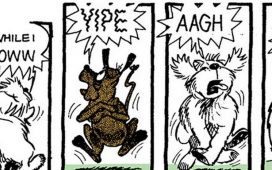Over the past few weeks, there has been a rise in heated arguments around face masks, – or rather people refusing to wear them.
Some of these debates have even led to bust-ups, as well as arrests and hefty fines.
Interestingly, a study from Vision Direct has found that six out of 10 adults won’t wear a face mask when in a pub or restaurant (which as of last weekend have now reopened).
Additionally, less than 50% of people are up for wearing one when out shopping and only 16% would consider popping on a mask during a date.
With a wide range of products now available, and research showing that face masks along with intermittent lockdowns could ‘curb a second wave’, why are some people so reluctant to don one?
Visit our live blog for the latest updates: Coronavirus news live
Is this simply down to lockdown fatigue or is there another reason? We find out.
Why are some people so reluctant to wear face masks?
Just because there’s a pandemic, it doesn’t mean that you’ve suddenly had a personality transplant.
So, if you’re used to breaking the rules or view these as a grey zone that can fluctuate depending on your needs, this could affect your choice to wear a mask.
‘If you’re someone who tends to conform to rules, then you’re likely to be very readily prepared to wear a face mask in order to be rule-abiding,’ Dr Elena Touroni, a consultant psychologist and co-founder of The Chelsea Psychology Clinic, tells us.
‘It also depends on how much you perceive Covid-19 to be a threat – to yourself or to others.
‘Many people choose to wear a face mask to protect other people, for example.
‘However, if you’re someone who doesn’t perceive Covid-19 to be particularly threatening, and you are also more rebellious and non-conformist by nature, then you may consider wearing a face mask to be oppressive – an impingement of your freedom.
‘A combination of these factors is likely to make someone resist the idea.’
The aforementioned study does support this to some degree, as a third of people don’t believe that masks protect them and 13% say they are ‘pointless’.
Meanwhile a third of the study participants also claimed to feel embarrassed by it.
Unfortunately, it appears toxic masculinity is somewhat at play, with men less likely to wear a mask.
‘There’s a worrying strain of people equating the order to mask up with a violation of their freedoms/rights,’ says, Alex Quicho, associate director of cultural intelligence at Canvas8, a trend analysis agency.
‘There have been some disconcerting memes/WhatsApp chains going around, which say such orders are preparing people for a lifetime of submission to government orders.
‘Interestingly, a separate study by the Centers for Disease Control and Prevention (CDC) found that men were less likely to believe they’d be seriously affected by Covid-19, and that wearing masks are a “sign of weakness” – so some gendered behaviours are at play here as well.’
There has been wide discussion among medical professionals around how effective masks are to wearers.
And these mixed messages have undoubtedly influenced people’s minds too.
Andrew Bridgewater, a chartered psychologist and author, explains: ‘There has been contradictory advice on the use of masks and people may just be confused.
‘Wearing a mask seems to be more about reducing the risk of spreading the virus to others than reducing our personal risk of contracting the the virus.
‘If so, wearing a mask is really an act of altruism (to protect others) and yet it hasn’t necessarily been presented as such.’
Do face masks protect you from coronavirus?
According to Dr Sabrina Shah Desai, a surgeon who works on Harley Street, a mask isn’t a guarantee that you won’t get coronavirus – as you could pick this up from contact points or in other ways – but it is an additional layer of protection.
And thus, useful to wear.
‘Wearing a face mask can stop some virus-laden droplets that are expelled into the air when a person coughs, sneezes or just breathes out,’ she says.
‘To this end, they can help curb the spread of droplets by breathing, coughing or sneezing in crowded environments such as public transport.
‘They can also help stop the contamination of surfaces and goods on supermarket shelves.
‘However, if a person wears a mask to protect themselves there are limitations.
‘When a sick person coughs or talks, microdroplets containing the virus can escape from their mouth or nose into another person’s face.
‘And while we mostly focus on the fact that we can inhale these droplets through your mouth or nose, it’s really important to remember that they can also enter through the mucous membrane of your eyes too.’
Humans are sociable beings, and having half of our faces covered for months on end – and being surrounded by people who are doing the same – can be exhausting on the psyche.
The study also showed that more than half of all participants would prefer others to be able to see them smile, 17% were concerned about communication and 14% said it was too hard for people to read their facial expressions.
This can be particularly difficult for someone who has a friend or family member who is deaf or hard of hearing, too.
Andrew adds: ‘When wearing a mask, people lose a significant part of their facial identity and we become relatively anonymous.
‘People may now be feeling weary of being told what to do and may want to recover their sense of self and identity.’
Confirmation bias could also be at play, according to Alex.
He says:’ I think it has a lot to do with what was communicated early on in the pandemic – officials in both the US and UK urged people not to wear face coverings in order to preserve supplies of PPE for hospital workers, which were running low.
‘That message seems to have been absorbed, but not necessarily revised, by big chunks of the population, in spite of follow-up studies saying otherwise.
‘This plays into confirmation bias; interpreting things through a lens of existing beliefs, i.e once you’ve decided your stance on wearing a mask or not, you’re more likely to seek out and believe information that supports your established view.
‘It also (strangely) plays into a sense of belonging on both sides of the political spectrum – while those who wear masks see it as an altruistic act, those who don’t wear masks may see it as form of anti-authoritarian solidarity.’
Whatever your reason for wearing or not wearing a mask, just remember to be respectful of others who might be scared and who are following the rules.
Times are dark enough right now, so make kindness and consideration a priority.
Do you have a story to share?
Get in touch by emailing MetroLifestyleTeam@Metro.co.uk.
MORE: 13 of the best face masks you can buy on Etsy
MORE: UK’s first face mask vending machines launch in London
MORE: Woman creates face masks from old fish nets















